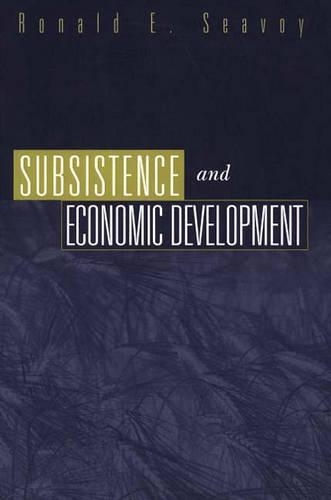
Subsistence and Economic Development
(Paperback)
Available Formats
Publishing Details
Subsistence and Economic Development
By (Author) Ronald E. Seavoy
Bloomsbury Publishing PLC
Praeger Publishers Inc
30th August 2000
United States
Classifications
Tertiary Education
Non Fiction
338.9
Physical Properties
Paperback
296
Description
Development economics, the author of this volume insists, is a failed discipline because it does not recognize the revolutionary difference between subsistence and commercial social values. He aims to demonstrate that commercial labour norms are essential for producing assured food surpluses in all crop years and an assured food surplus is essential for sustaining the development process. The commercialization of food production is a political process, as in the term political economy. If peasants have a choice, they will not voluntarily perform commercial labour norms. Central governments must overcome peasant resistance to performing commercial labour norms by various forms of coercion. The most historically effective coercions are deprivation of peasant control of land use by foreclosure and eviction for excessive subsistence debts. Landless peasants are forced to become supervised paid labourers. Coercion is most effective when it is linked to money rewards for peasants who voluntarily transform themselves into yeomen cultivators or farmers. These commercially motivated cultivators and storekeepers become the resident commercializing agents in peasant villages who administer the central government's coercive and inducement policies. Based on extensive examples and field observation, this book is designed for use in courses that explore problems of economic development.
Author Bio
RONALD E. SEAVOY is with the Department of Business Economics and Public Policy, Kelley School of Business, Indiana University, Bloomington. Previous books by the author include Famine in Peasant Societies (Greenwood Press, 1986), Famine in East Africa: Food Production and Food Policies (Greenwood Press, 1989), and The American Peasantry: Southern Agricultural Labor and Its Legacy, 1850-1995 (Greenwood Press, 1998).
